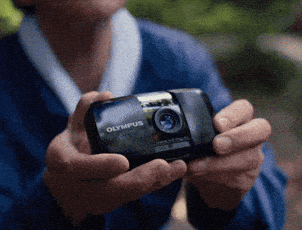- The Creator Lens
- Posts
- 🔍 AI-Powered Metalenses Rewrite Photography, 📚 HarperCollins’s AI Deal & 🎬 Ben Affleck's Bold AI Take
🔍 AI-Powered Metalenses Rewrite Photography, 📚 HarperCollins’s AI Deal & 🎬 Ben Affleck's Bold AI Take
HarperCollins’s groundbreaking AI deal is stirring up a conversation among authors about the future of writing. Meanwhile, Ben Affleck gets candid about the role of artificial intelligence in shaping Hollywood's landscape—could this mark a new era for filmmaking? Plus, discover how AI-powered metalenses are revolutionizing photography, pushing the boundaries of what's possible behind the lens.
In today's rundown
VISUAL CREATORS
For your artistic side.

The Story: A groundbreaking union of deep learning and metalense technology is here to elevate photography. Researchers have integrated artificial intelligence with metasurface lenses—ultra-thin lenses made from nanostructures—to address the long-standing issues of chromatic aberrations while maintaining a compact design. This innovation promises sharper, full-color images without the bulk of traditional lenses, potentially revolutionizing devices from smartphones to drones.

The Details:
Metalenses serve as ultra-thin alternatives to traditional glass lenses, struggling with color distortions and focusing inefficiencies.
By combining these lenses with AI-powered image correction, researchers achieved resolution and color fidelity comparable to, or better than, classic optical systems.
The system utilizes a deep learning model that continuously trains on large datasets, adapting to improve image quality over time.
It promises significant benefits for photography, VR, AR, and even medical imaging, allowing for lighter gear without sacrificing performance or quality.
Scalable manufacturing techniques will keep costs down, making this technology accessible for everyday use.

Why It Matters: This fusion of AI and optics represents a paradigm shift crucial for creatives in various domains. For photographers and videographers, the ability to capture high-quality images with nimble, lightweight gear could simplify shoots and enhance creativity. Plus, as industries like VR and AR expand, the demand for innovative imaging solutions will only increase. By eliminating the performance-size trade-off, this technology empowers creators to do more with less, ultimately lowering barriers to high-quality production and creativity.
PRODUCTION MASTERY
The commercial aspects of creativity.

The Story: HarperCollins has struck a deal with an unnamed AI tech company to allow limited use of select nonfiction backlist titles for AI model training, giving authors the choice to opt in or pass. While HarperCollins highlights innovation, the offer of $2,500 raises concerns among writers about the implications of licensing their work to AI, reigniting debates over copyright and authors’ rights.
Here is the full statement given to 404 Media:
HarperCollins has reached an agreement with an artificial intelligence technology company to allow limited use of select nonfiction backlist titles for training AI models to improve model quality and performance. While we believe this deal is attractive, we respect the various views of our authors, and they have the choice to opt in to the agreement or to pass on the opportunity.
HarperCollins has a long history of innovation and experimentation with new business models. Part of our role is to present authors with opportunities for their consideration while simultaneously protecting the underlying value of their works and our shared revenue and royalty streams. This agreement, with its limited scope and clear guardrails around model output that respects author’s rights, does that.
The Details:
The agreement allows select nonfiction titles to be used in training AI models, aimed at improving quality and performance.
Authors can choose to participate in the deal, providing them with some autonomy over their works.
The non-negotiable payment for participation is set at $2,500, which some authors find inadequate given the scope of the deal.
Author Daniel Kibblesmith shared the offer he received, underscoring concerns about being compensated for works contributing to AI training.
This development highlights the ongoing tension between traditional publishing and the disruptions posed by AI technologies.
Abominable.
— Daniel Kibblesmith (@kibblesmith.com) November 15, 2024 at 8:36 PM
[image or embed]
Why It Matters: This partnership between HarperCollins and AI underscores the evolving relationship between technology and creative industries. Authors like Kibblesmith express concerns about the commodification of their work, raising vital questions about copyright, compensation, and the future of literary creativity. As the use of AI in publishing intensifies, maintaining the value of authors' contributions becomes critical, and this case exemplifies the broader struggle for creatives in the age of AI.
TOGETHER WITH ROKU
Run CTV Ads on Roku This Q5
“Q5” is a key post-holiday shopping period
Reach shoppers where they’re streaming – on Roku
You can run self-serve CTV ads for just $500
CREATOR ECONOMY
Navigating the digital creative world.

The Story: Ben Affleck has weighed in on the debate about artificial intelligence in Hollywood, arguing that while AI may disrupt the visual effects industry by reducing costs, it isn't likely to replace the artistry involved in filmmaking. He believes the technology can actually benefit indie filmmakers by streamlining tedious tasks, thus making production more accessible.
The Details:
Affleck states that AI will "hammer" the visual effects sector, drastically lowering costs for production. This raises skepticism among VFX professionals about their future job security.
Nevertheless, he reassures that creative filmmaking isn’t threatened by AI, as it lacks the inherent artistic judgment that humans possess—making it "unlikely to replace" skilled filmmakers.
The actor envisions AI taking over mundane aspects of production, allowing directors to focus on more creative tasks, and streamlining processes within indie filmmaking.
Affleck suggests that viewers might even pay for custom-made episodes of popular series, paving the way for new business models in the entertainment industry.
He describes AI as a craftsman rather than an artist, stating it excels at imitation but struggles with true innovation and taste, critical elements in filmmaking.
Finally a grounded take on AI & filmmaking from a Hollywood A-lister. I agree with everything Ben Affleck said:
1. Yes, AI will shatter barriers to entry. Budgets will drop, the number of movies will rise, and more voices will have access to filmmaking. Paradoxically, this'll… x.com/i/web/status/1…
— Bilawal Sidhu (@bilawalsidhu)
4:01 PM • Nov 16, 2024
Why It Matters: Affleck’s insights shine a light on a pivotal issue in today's film industry: the duality of AI as both a tool and a potential disruptor. For photographers, filmmakers, and creatives, understanding AI's evolving role can help redefine creative processes and reshape business models. His commentary could also encourage fresh discussions about the implications for job security and the preservation of human artistry in an industry rapidly adopting technology.
📫 Sign up for The Creator Lens
🔥 Press Worthy

Apple coming for Adobe
📽️ VISUAL CREATORS
MIT physicist Stuart Sevier pivots from academia to authenticity, launching Atom Images and the H1 device. This $239 tool links to any digital camera, signing images with a unique fingerprint, tackling the blurry line between real and AI-generated content head-on.
Insta360 has revised its User Service Agreement after user backlash over ambiguous language, particularly regarding content rights and "commercial exploitation." The updated guidelines now clarify that Insta360 claims only limited rights, easing user concerns and encouraging more transparent communication about content usage.
📈 PRODUCTION MASTERY
The New York Times is doubling down on generative AI, launching BrandMatch to create tailored audience segments for advertisers. This move is a response to the challenges of third-party data accuracy and aims to enhance targeting and engagement, boosting click-through rates significantly.
Claude Monet's iconic water lilies painting sold for a staggering $65.5 million at Sotheby’s, highlighting collectors' current tastes amid an art market slump. While the Impressionist sale shined, a $12 million Matisse flopped, signaling a demand for quality over big names.
🎭 CREATOR ECONOMY
TikTok is quietly rolling out a new feature that enables select creators to add product links from major affiliates like Amazon and Walmart directly in posts. Though unannounced, this integration enhances TikTok's shopping reputation while simplifying the user purchase experience.
Perplexity has launched its new AI Shopping Assistant, now available for U.S.-based Pro subscribers. This feature enhances e-commerce by enabling users to pose shopping questions and receive visual product recommendations, streamlining purchases with one-click checkout.
📫 Sign up for The Creator Lens
📚 Learn & Grow

📽️ VISUAL CREATORS
The Story Behind the Photo That Won $200,000 at HIPA 2024
4 Reasons the 85mm is Perfect for Portraits & How to Use It
📈 PRODUCTION MASTERY
Graphic designer, do you need to study “The Design Greats”?
Rebecca Hall: I regret apologising for working with Woody Allen
🎭 CREATOR ECONOMY
David Attenborough Reacts to AI Replica of His Voice: ‘I Am Profoundly Disturbed’ and ‘Greatly Object’ to It
Turning down the volume and dialling up the creativity with Joanna Blémont
Reply